
Water determines the Great Lakes Region’s economic future
Climate change, geopolitics and business opportunities power a blue economy
Ontario’s integrity commissioner and its auditor general have both decided to launch investigations into the Doug Ford government’s decision to open Greenbelt land for development.
Integrity Commissioner David Wake will investigate whether Municipal Affairs and Housing Minister Steve Clark breached rules that bar MPPs from making decisions or using insider information to improperly further their interests, or those of other people. Wake’s initial report published Jan. 18, was prompted by a complaint from incoming Ontario NDP Leader Marit Stiles, which Wake said included “direct evidence.”
“After assessing this information, I have decided to conduct an inquiry,” Wake wrote, without going into further detail about his reasoning.
And in a press conference later that afternoon about the investigation, Stiles said Ontario’s auditor general had also told the NDP it would launch an audit of Greenbelt land sales, the result of a joint complaint filed by all three opposition parties.
“We think we can add value by looking at it and providing some facts,” Auditor General Bonnie Lysyk told The Narwhal in a phone interview. “We do take it seriously when all the leaders are requesting this type of work and we did receive a lot of correspondence on this issue.”
The parties’ complaints to Wake and Lysyk cited a joint investigation by The Narwhal and the Toronto Star which found that of the 15 areas to be opened for development, eight included properties purchased since Ford was elected. Six developers bought Greenbelt land after that first win in 2018, the same year Ford was recorded telling a private audience he would “open a big chunk” of the protected area if he became premier. Other developers, who own portions of long-protected land have held it for many years, also stand to make immense profits.
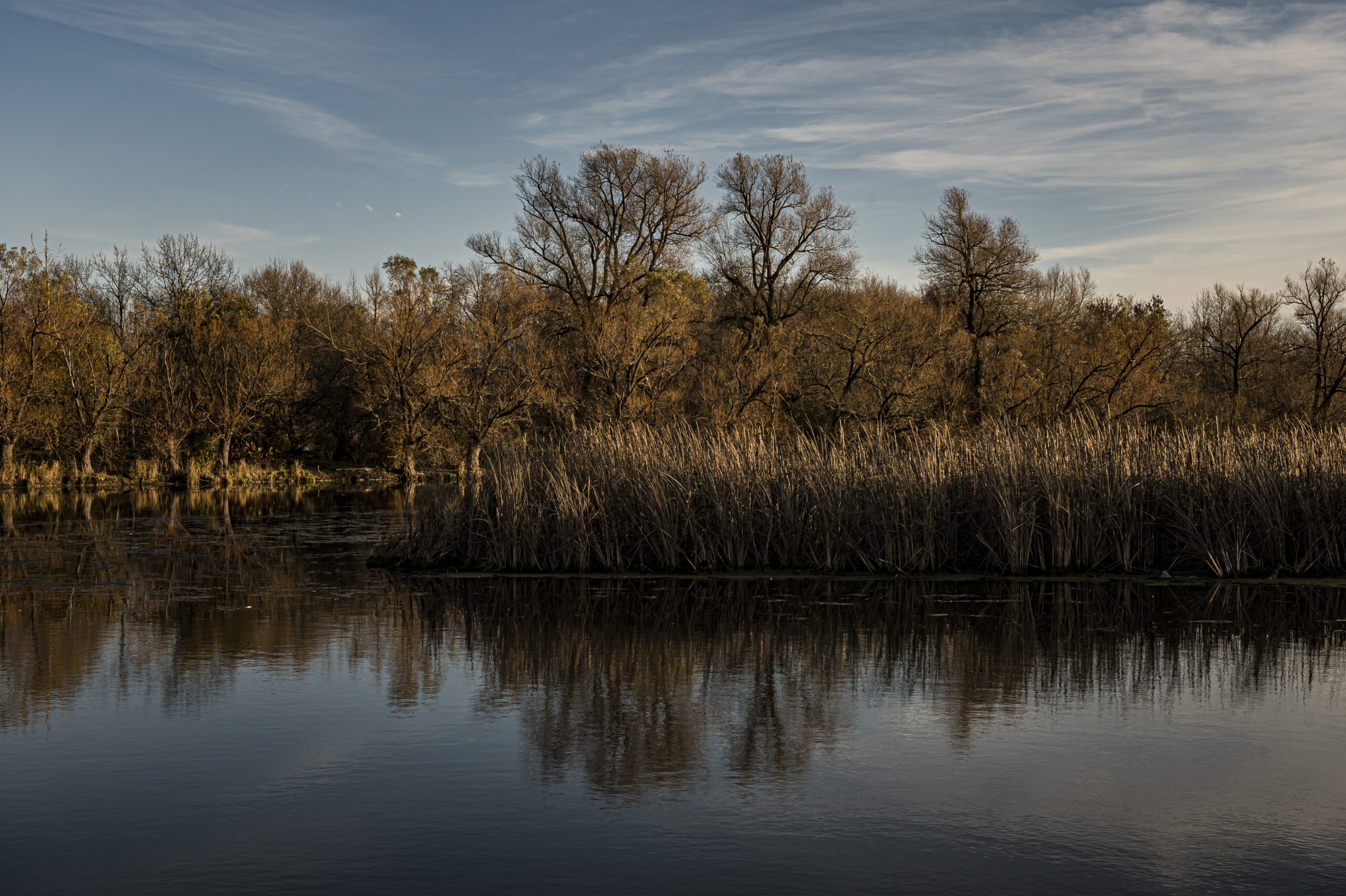
The Narwhal/Star investigation also found that nine of the developers who stand to benefit most from the Greenbelt land swap appear to have donated significant sums to the Ontario Progressive Conservatives. Names matching the developers, their companies, their families and their senior staff members have given $572,000 to the party since 2014, donation records show. Five are also connected to the Progressive Conservatives through former Tory officials and politicians now working as registered lobbyists.
“I am alarmed by the ongoing media reports that outline curious timing of recent purchases of Greenbelt land by powerful landowners with donor and political ties to the Ontario PC Party,” Stiles wrote in a letter to Wake after the Narwhal/Star investigation was published.
Spokespeople for Clark said the minister “looks forward to being cleared of any wrongdoing at the conclusion of the investigation” by the integrity commissioner, and that he will cooperate with Lysyk’s audit.
In a statement, Clark’s office argued that the Greenbelt changes will “provide significant public benefits including hundreds of millions of dollars in new public infrastructure,” though it didn’t offer specifics. Developments on former Greenbelt will still need municipal approval and the province will require that any environmentally sensitive areas are “set aside and protected before any construction begins,” the statement said.
The investigations by Wake and Lysyk are the latest in the ongoing fallout of the Ford government’s vast weakening of environmental policy, which it says is aimed at kickstarting housing policy.
Along with the Greenbelt land swap, fall 2022 saw the province introduce a slew of other changes to development processes and policy that weaken or eliminate environmental protections. Among them was the decision to override the municipal governments of Hamilton and Halton, which had voted to protect farmland and greenspace by densifying existing residential areas — instead, the government has forced them to expand their urban boundaries.
Here’s an overview of the fallout over the Greenbelt move and the rest of the government’s sweeping changes. The Narwhal will be updating this list as it all plays out.

The first request for Wake to investigate the Greenbelt deal came on Nov. 29, 2022, from the Ontario Green Party. Green leader Mike Schreiner asked the commissioner to examine whether Premier Ford and Clark, whose portfolio includes Ontario’s Greenbelt, violated rules around conflict of interest and the sharing of insider information.
“I appreciate these are serious allegations, and I didn’t file this complaint proudly or without due consideration, but at the request of Ontarians who deserve transparency and to have the utmost trust and respect for their elected officials,” Schreiner said in a statement.
At that point, the government had spent weeks dodging questions about whether it had given developers advance warning of the changes. After Schreiner’s complaint, Clark denied having given developers a heads-up.
“I look forward to being vindicated and I look forward to the apology from the official opposition,” said Clark, who also remarked that he often meets with “people who want to build housing” and that he “followed all of the rules.”
Stiles filed her complaint shortly afterward Schreiner, on Dec. 9.
In his preliminary report on Jan. 18, Wake said Schreiner’s complaint, which cited the reporting by The Narwhal and the Star, lacked the evidence needed for his office to launch a full investigation, as the commissioner doesn’t consider media articles alone to be “evidence.”
“The media articles may raise a reasonable suspicion of an improper furtherance as a result of the owners being ‘tipped off’ to the changes to the Greenbelt Plan but that does not amount to reasonable and probable grounds to enable me to conduct an inquiry,” Wake wrote.
But the letter from Stiles, which included 145 pages of exhibits, was “extensive” and included “direct evidence,” Wake wrote.
“There’s no question in my mind, and I think in the minds of many Ontarians, that something smells fishy here and Ontarians deserve answers,” Stiles told reporters Wednesday.
Stiles’ letter to the integrity commissioner also alleges “improper” lobbying efforts by Luca Bucci, CEO of Ontario Home Builders’ Association, a development industry lobby group. Two months before taking that position, Bucci served as Minister Clark’s chief of staff, a position he held from January 2021 to April 2022. That August, he registered to lobby Clark’s ministry on the association’s behalf, the Ontario’s lobbying registry shows. The integrity commissioner has previously said that former government staffers should wait a year before lobbying their former employer.
In his report, Wake noted that he can’t disclose whether he’s investigating a lobbyist, unless he decides to penalize them for breaking integrity rules.
Bucci and the association didn’t respond to a request for comment.
“We want to make sure that [developers] weren’t given any special treatment here,” Stiles told reporters. “If there is a finding of some members breaking the [Members’] Integrity Act then I think that will be pretty unprecedented.”
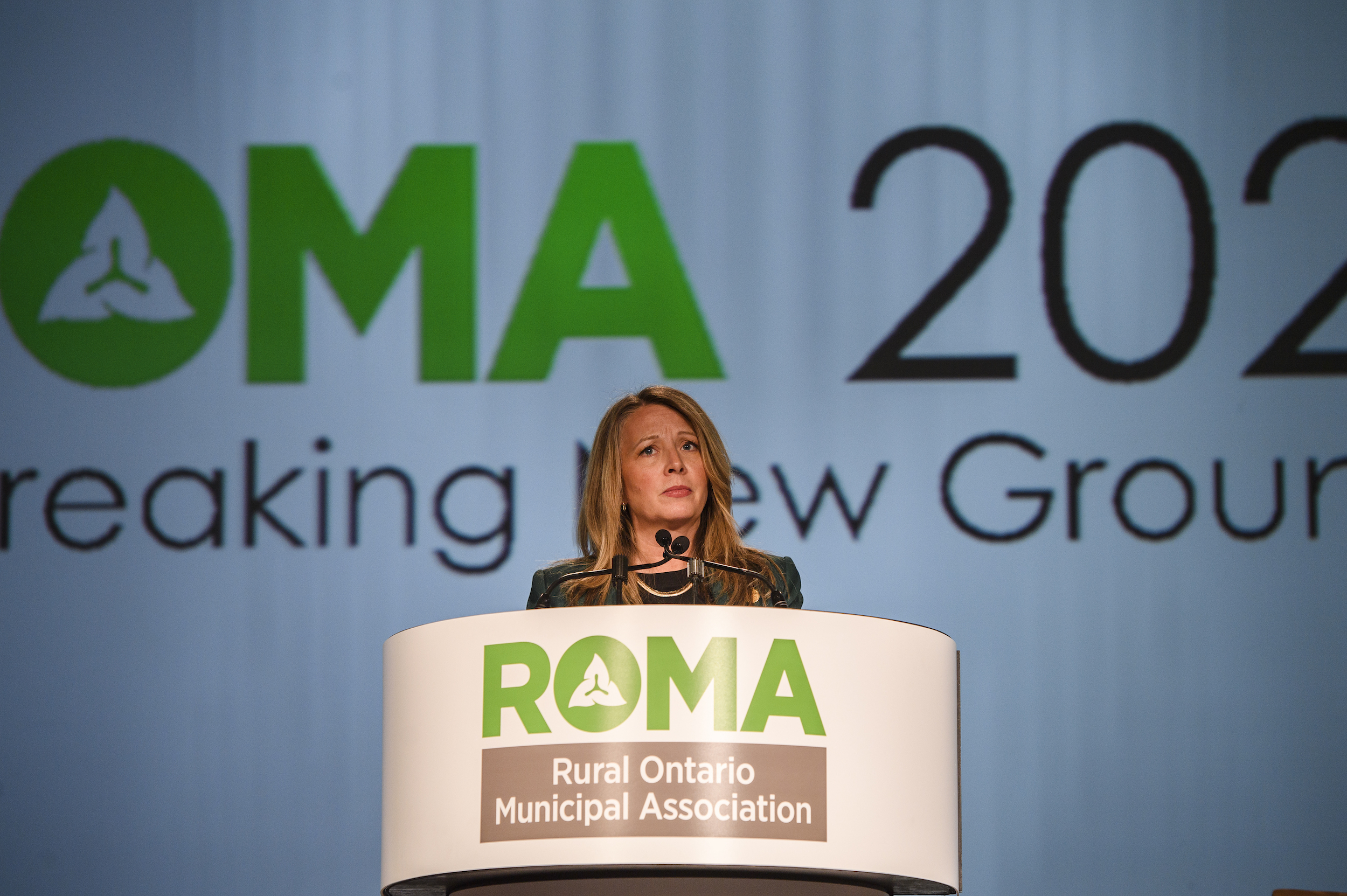
On Jan. 27, the Ontario NDP submitted additional evidence to the integrity commissioner that the party said suggests at least one developer may have had prior knowledge about the Greenbelt plans. The submission centred on one of the Greenbelt parcels being opened for development, which is also the proposed new site of a Southlake Regional Health hospital in the Township of King, population 27,333.
The township is the largest municipality in York Region, a suburb between Toronto and Lake Simcoe, but has the smallest population. It is unique for existing entirely on protected land designed to be largely undevelopable: roughly two-thirds of the township is on the Oak Ridges Moraine, with the remainder existing on Greenbelt land. Historically, the township has been the fastest-growing municipality in the region, a tension that often pits development proposals against environmental protections.
The township wants to build the Southlake Regional Health Centre on a parcel of land that lies in both the Greenbelt and the Oak Ridges Moraine. To do so, it would need to buy Greenbelt land from Rice Group, a prominent development company owned by CEO Michael Rice — land that Rice bought just weeks before the government made its announcement. Rice and his company are among the developers that have made significant donations to the Progressive Conservatives, the Narwhal/Star investigation shows.
The NDP’s second submission is the response to a freedom-of-information request to King Township filed by Gordon Prentice, a resident of Newmarket, Ont., after a council meeting where the Rice Group’s willingness to sell the land “for a nominal fee,” was mentioned in a motion approved by the local council.
Prentice, who has run for municipal office in the region, asked the township for details of when that commtiment had been made. He originally posted the response from the township on his politics blog, which was then shared by the Ontario NDP on Feb. 1.
The response said the developer’s commitment to mayor Steve Pellegrini was made at an “in-person meeting” with “Rice Group and Southlake representatives,” three days before the announcement that land in the Greenbelt was being opened for development. But the freedom-of-information requested turned up no written records because the commitment was “conveyed verbally.”

The NDP’s submission does not show direct evidence Rice or Pellegrini knew of the imminent opening of Greenbelt lands when they had this conversation. But the party suggested wouldn’t be possible to build a hospital there unless the Greenbelt protections on that land were removed.
“Maybe they had a crystal ball, but it seems to me like someone knew something,” Stiles told reporters on Feb. 1. “The evidence tells us someone knew something before the government relayed its plan to the public.”
In an interview with The Narwhal, Pellegrini said Stiles is mistaken. The idea of setting aside some of the Rice Group land for a hospital was his own, the mayor said, and the point of the meeting was just to introduce the landowner to representatives of the hospital. Pellegrini said he believes hospital development is allowed on the Greenbelt, but he opposes the Ford government’s plans to remove land from the protected area and build new homes there.
“The leader of the NDP doesn’t have anything correct in her allegations, so I would like an apology,” Pellegrini said.
The “nominal fee” for the land mentioned in the council motion is a few dollars, a standard cost of transferring land to another owner, Pellegrini said.
The proposed hospital land is just a piece of the full parcel owned by Rice. It’s not uncommon for developers to offer up a portion of land in the middle of an undeveloped area for the construction of needed infrastructure, like a hospital. If municipalities take on the cost of installing services such as sewers, electricity and water, it becomes easier for developers to build other things nearby.
The NDP’s new letter to the commissioner also notes the broker of this land deal was John Dunlap, who sat on the board of Southlake Regional Health Centre until September 2022, when Rice bought Greenbelt property.
In a statement, Clark’s office again denied giving developers advance warning, and said no one from the province was present at the meeting.
Rice Group didn’t immediately respond to questions from The Narwhal about the new revelations.
The scope of the integrity commissioner’s investigation could also expand following another complaint about the premier’s ties to developers. In February, Global News and the Toronto Star broke the news that prominent developers who have benefitted from government decisions were present at a pre-wedding stag-and-doe party for the premier’s daughter, which had an entry fee of $150. One developer who was highlighted in the Narwhal/Toronto Star investigation into Greenbelt land sales also attended the wedding.
The NDP asked Wake to conduct an inquiry into those events well. And in an interim report released March 16, Wake said he’d put the new request on hold while he investigates the Greenbelt issue, as the two are intertwined. Though the commissioner wrote that he has some reservations about whether the wedding events actually broke ethics rules, he also said there’s a question there worth looking into — did Ford or someone else in the government use their influence to improperly help the interests of their friends?
Wake said he is currently working on preparing a final report about the Greenbelt complaint.
“I have required the production of documents from government and non-government sources,” Wake wrote in the interim report.
“My staff and I are reviewing the extensive material gathered so far and have done independent research on the matter. We are preparing summonses for numerous witnesses to be interviewed.”
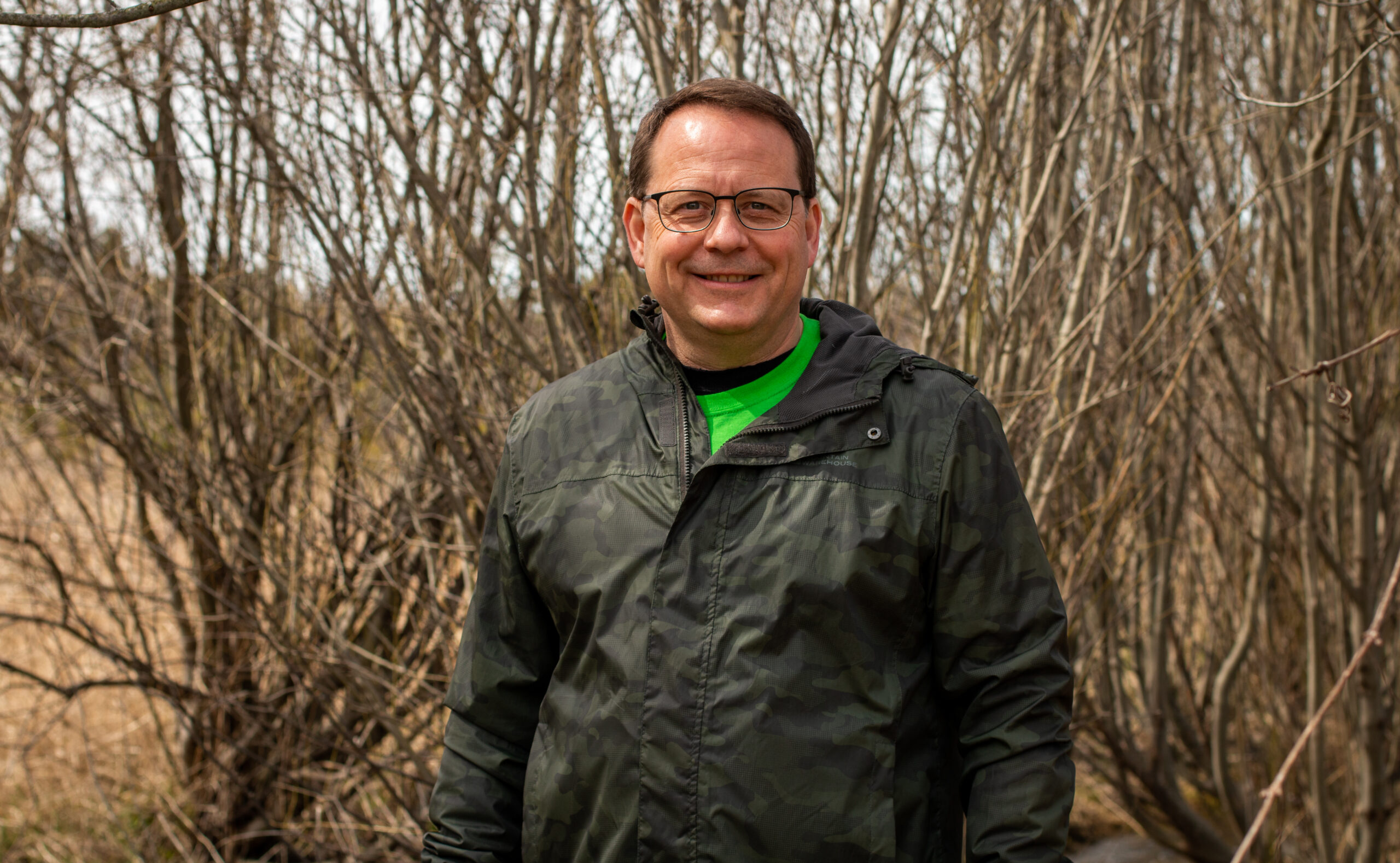
Entreaties to Auditor General Bonnie Lysyk started in the wake of the Narwhal/Star investigation, on Nov. 25, 2022, when the Ontario NDP called for her to probe how much developers stood to gain from Greenbelt land sales and whether the government’s plan was in the public interest. The NDP, Liberals and Greens made a joint request that went a step further on Jan. 12, asking Lysyk to audit the financial and environmental impacts of the government’s decision.
In particular, the parties pointed to the removal of lands from the Duffins Rouge Agricultural Preserve section of the Greenbelt which, up until recently, had easements meant to keep it as farmland in perpetuity. The Ontario government sold the land to farmers decades ago at low prices, with the easements as a guarantee that it would stay undevelopable. Developers later bought up much of the area at similarly cheap prices — and stand to make huge profits now that the province has removed those protections.
“These easements represented a multibillion-dollar public investment in Ontario’s natural and agricultural systems by the people of Ontario, who gave up enormous profits when the Ontario government sold these lands at discounted prices on the condition that they forever remain farmland,” the three parties wrote in their letter to Lysyk.
Lysyk confirmed she would launch the investigation in a phone call with The Narwhal on Jan. 18, adding her office will determine the scope of the audit as it gets underway.
“I also reached out to ensure that the government would cooperate with our work, and they indicated they would,” Lysyk said.
Lysyk has also said she will explore whether the government breached the Environmental Bill of Rights in the passage of Bill 23. This legislation mandates the government meaningfully consult, engage with and consider public and expert feedback before passing laws affecting the environment. In a letter, Lysyk told NDP MPP Jessica Bell she has “concerns” about whether this was done before the housing bill was made law. In her latest annual review of the Ford government’s compliance with the bill, Lysyk found “recurring” violations.
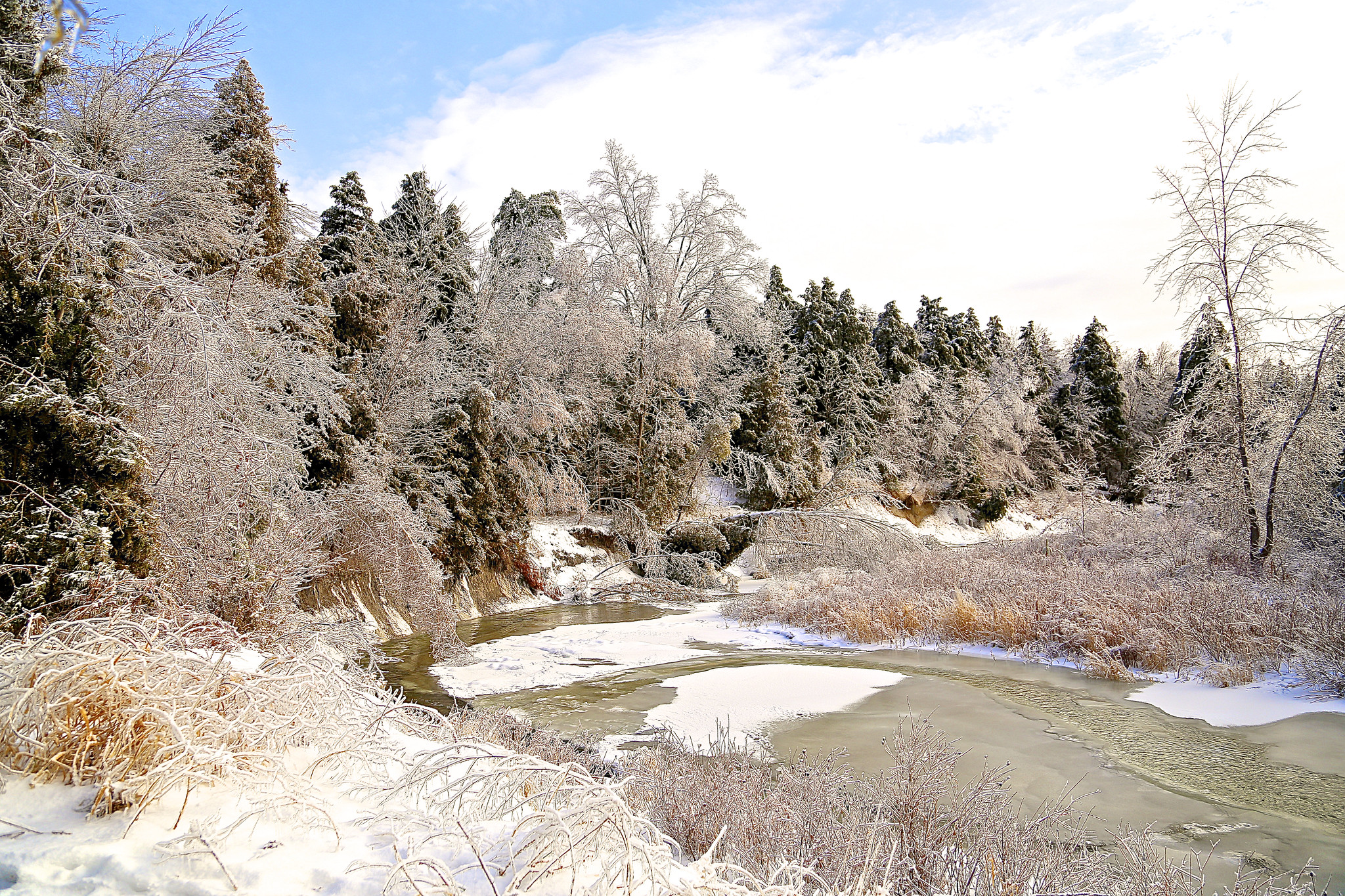
Just as the winter break kicked off, the chair of Ontario’s Species Conservation Action Agency, Doug Varty, resigned in protest of the province’s dismantling of environmental protections to get “More Homes Built Faster.”
In an interview with The Narwhal, Varty said his resignation less than a year into his appointment by the Ford government had to do with “personal” concerns that he felt he couldn’t express publicly as the chair of a government agency.
“It just seems to me that we’re sliding backwards in Ontario, when we need to be doing more faster on a bigger scale if we’re going to deal with climate change and biodiversity loss,” he said.
“To see it all disappear and get destroyed, I think would just be a shame. It’s not the sort of legacy I want to leave my children and grandchildren.”
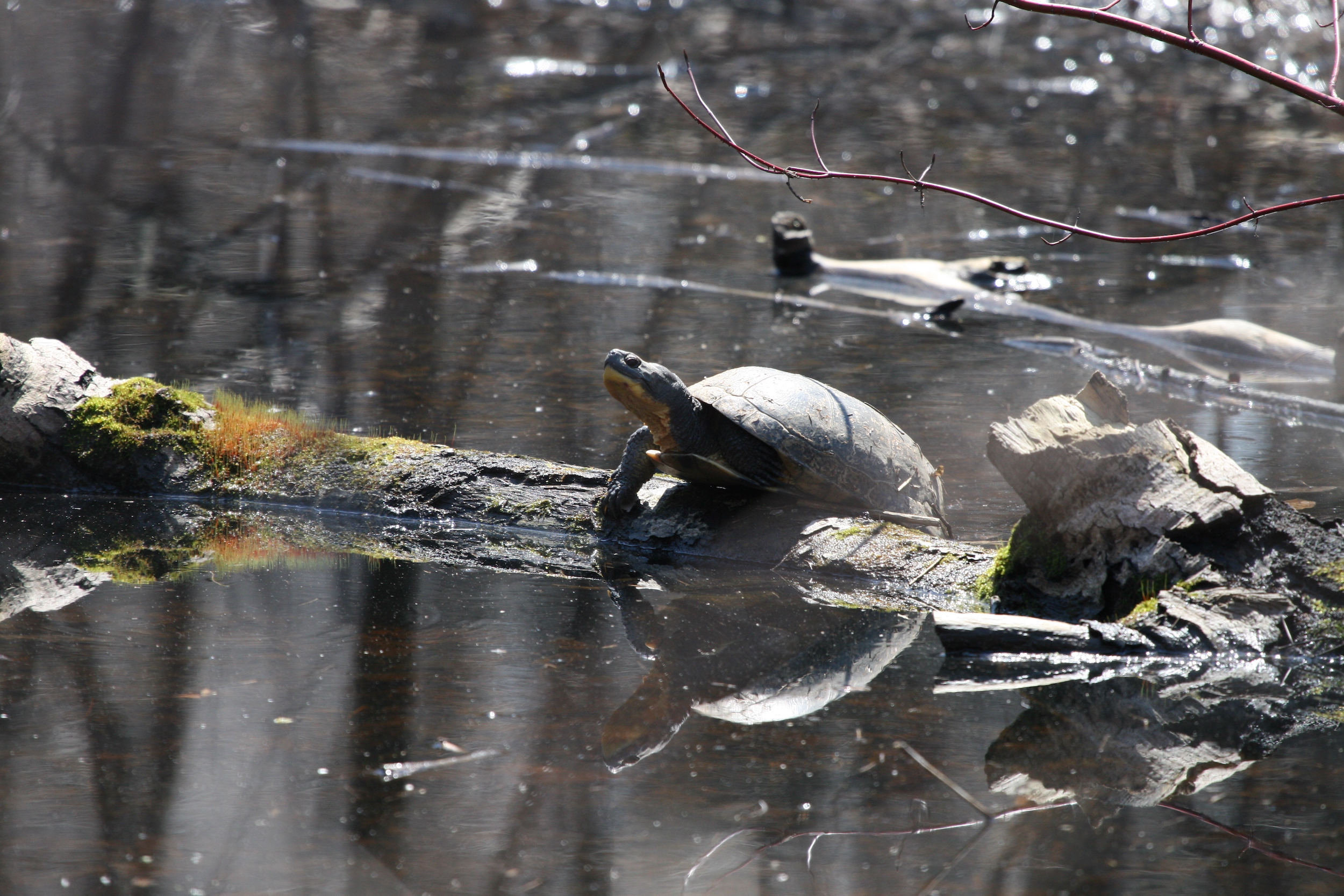
The Ontario government created the Species Conservation Action Agency in 2021 to administer a new provincial fund for species at risk. That fund allows industry to do work that harms the habitats of six species at risk — the butternut tree, Blanding’s turtle populations in the Ontario shield region and four birds — the barn swallow, bobolink, eastern meadowlark and eastern whip-poor-will — on the condition that they pay into the fund.
In early December, The Narwhal reported on a letter sent from Parks Canada to the Ontario government, which said the decision to alter the Greenbelt’s boundaries violated an agreement between the two levels of government about the management of Rouge National Urban Park. Parks Canada highlighted the need to protect species at risk, saying the Blanding’s turtle was of particular concern, although this specific population of turtles wouldn’t be eligible for the fund. “While turtles are released in Rouge National Urban Park, these species move in an unrestricted fashion between the park and the adjacent Greenbelt lands,” the letter said.
Conservationists are also worried about the changes Ontario is making to wetland policy: reviews of development applications can now no longer include how species at risk use the habitat to be impacted.
More than a dozen complaints over Greenbelt land sales went to the Ontario Provincial Police. One was from the charity Environmental Defence, which wants to know definitively if any developers were tipped off to the government’s plans.
“There’s no public interest argument for why this is being done,” Environmental Defence executive director Tim Gray told the Toronto Star. “But there’s very clearly a private interest benefit occurring here to particular landowners, many of which purchased land since the government has been elected.”
On Jan. 5, Global News reported the Ontario Provincial Police’s anti-rackets branch had quietly begun conducting interviews to decide whether it will launch an investigation.
Gray told Global he had spoken to the police, and was told the police would make a decision about pursuing an investigation later in January. Ford’s office said it hadn’t yet been in touch with the police about it.
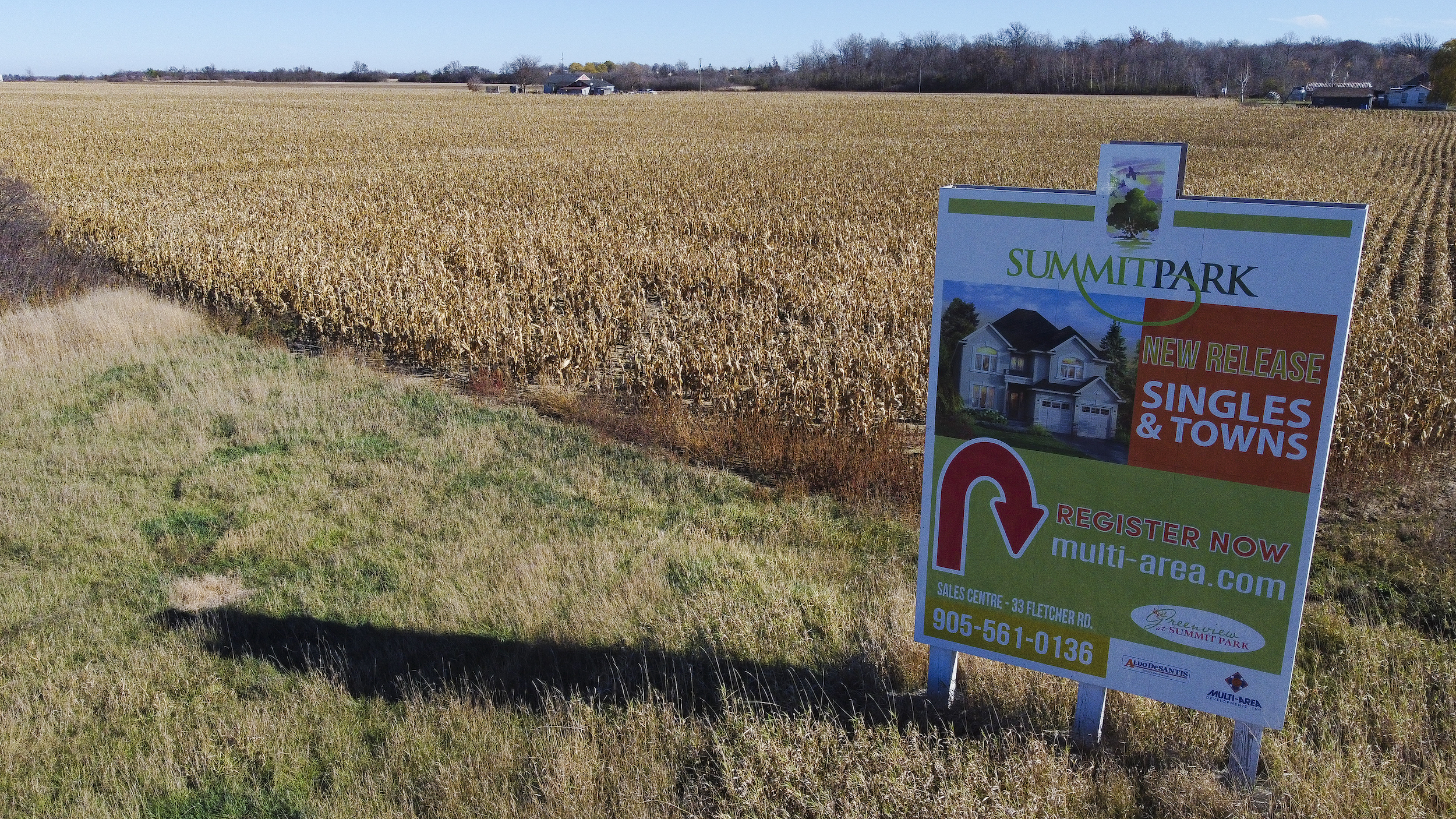
By Jan. 9, one lawsuit, by Ecojustice, Canada’s largest environmental law charity, had already been filed in the wake of the Ford government’s development plans. The suit challenges the government’s decision to expand the city of Hamilton’s urban boundary by 2,200 hectares, 90 per cent of which is prime agricultural and Greenbelt land.
The decision, which cannot be appealed, overrides Hamilton city council’s own decision to not expand its boundary and abide by the results of a year-long public consultation process that demanded intensification, not sprawl.
In its suit, Ecojustice argues the Ford government’s decision is “unlawful” as it did not consult, nor properly inform or listen to the residents of Hamilton. Ecojustice also claims Minister Clark did not explain his decision “in a transparent, justifiable or intelligible manner.”
“The Minister provided no public reasons for his decision to impose significant amendments on the City’s official plans,” Ecojustice argues.
Ecojustice also said the province ignored all the studies and projections the City of Hamilton submitted that showed how it would meet the provincial growth requirements by increasing development in already built-up areas.
The province has said the expansion will increase the availability of affordable housing, but Ecojustice argues there is no evidence of this. Still, land around Hamilton is already seeing a flurry of activity. A December 2022 investigation by the Hamilton Spectator reported several local farmers had received purchase offers for their land in the weeks before Bill 23 was released.

Since the release of Bill 23, Indigenous chiefs and organizations across Ontario have repeatedly reminded the Progressive Conservatives of their legal duty to consult them before making any decisions about land use. The Chiefs of Ontario have said the lack of consultation makes the government’s land use changes unconstitutional and at asked for its repeal at a special assembly in December.
In mid-January, Mississaugas of the Credit First Nation Chief Stacey Laforme told CityNews his nation is considering legal action. He said the government has left his nation with little recourse when much of the 7,400 acres of Greenbelt land set to be opened up is in their territory.
Laforme said he is open to dialogue with the government, but only if the bill is repealed first. It’s “like a two-pronged attack on our obligations to the environment and as treaty holders and stewards,” Laforme told CityNews. “You can’t just think the environment and the lands can be traded off for another section when you need that section. It doesn’t work that way.”
Hundreds of Ontarians have taken to the streets since the Ford government released its plans to water down environmental protections to build more housing. Over 29,200 have also sent their opposition to the government’s plans in writing. Their rallying cry: “hands off the Greenbelt” and “repeal Bill 23.”
Rallies began soon after the October release of Bill 23 and gained momentum with the Greenbelt changes, with at least 20 rallies held over a single weekend in December. Farmers are urgently reminding the government the loss of agricultural land cannot be reversed. Environmental groups, including Stop Sprawl chapters across the province, are asking the government to reconsider so as to not worsen the impacts of climate change.
The Ontario Society of Professional Engineers also condemned the Greenbelt changes. In response to a letter from a group of engineers expressing concern about how Bill 23 would affect safety, CEO Sandro Perruzza said he had voiced his opposition directly to the government. “Converting Greenbelt lands to residential development will hinder Ontario’s carbon targets without providing economic return, nor reduce the cost of buying a new home,” Perruzza wrote in a letter to the province.
Ontario municipalities are pushing back, too, as they look to increase property taxes to deal with increased regulatory burdens. The City of Mississauga created a dedicated page on its website and in November sent a flyer to every resident informing them “You can’t afford Bill 23.”

In late January, Federal Environment Minister Steven Guilbeault criticized the Ontario government’s move to open the Greenbelt, telling The Narwhal it “flies in the face of everything we’re trying to do in terms of being better prepared for the impacts of climate change.”
More than once, Ford or Clark has pointed to the federal government’s immigration targets as a reason it needs to accelerate housing development. But at a press conference in Toronto on Jan. 26, Guilbeault said he “profoundly reject[s]” the idea that “in order to provide housing to Canadians, we need to destroy nature.”
The federal minister noted he has used his office to intervene in residential development already, halting a Quebec project that threatened the habitat of a federally protected species at risk, the western chorus frog. Guilbeault added the federal government could also use its Impact Assessment Act to intervene. It previously used this tool to launch a federal review of the proposed Highway 413 project in 2021. Since that time, the controversial project has been stuck in limbo.
The day after Guilbeault’s statements, Ford said he was “disappointed” and that development is provincial jurisdiction.
Updated Jan. 18, 2023, at 3:55 p.m. ET: This story was updated to include statements from Clark’s office.
Updated on Feb. 1, 2023, at 12:23 a.m. ET: This story was updated to include details of additional evidence filed by the Ontario NDP to the integrity commissioner about a meeting between the mayor of the Township of King and Rice Group. It was also updated to include federal Environment Minister Stephen Guilbeault’s comments about possible intervention on Greenbelt development.
Updated on Feb. 1, 2023, at 4:25 p.m. ET: This story was updated to include details of an interview with King Township Mayor Steve Pellegrini.
Updated on March 16, 2023, at 2:47 p.m. ET: This story was updated to include the integrity commissioner’s initial report on events surrounding the premier’s daughter’s wedding.
Get the inside scoop on The Narwhal’s environment and climate reporting by signing up for our free newsletter. On a warm September evening nearly 15...
Continue reading
Climate change, geopolitics and business opportunities power a blue economy

10 billion litres of sewage are dumped into Winnipeg’s lakes and rivers each year. Some...

Court sides with Xatśūll First Nation, temporarily halting Mount Polley mine waste expansion
